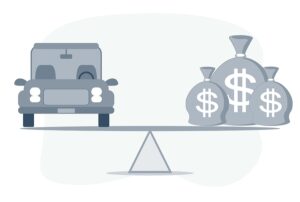Increase in Vehicle Exemption
- Broader Protection: More debtors will now be able to retain their vehicles, which is essential for maintaining employment, fulfilling family obligations, and other daily activities.
- Higher Equity Vehicles: Individuals with slightly higher equity in their vehicles will benefit from this change. For example, if your vehicle’s equity is $5,000 or less, you can keep it under the new exemption rules.
- Reduced Financial Strain: Losing a vehicle can be a major setback, especially during financial hardship. The increased exemption provides better protection against this potential loss.

Increase in Income for Means Test Purposes
- More Eligibility for Chapter 7: With higher income limits, more individuals will qualify for Chapter 7 bankruptcy, which can provide a quicker and more complete discharge of debts.
- Fairer Assessment: The adjustment ensures that the means test accurately reflects the current economic environment, offering a fairer assessment of a debtor’s financial situation.
- Relief for Middle-Class Debtors: Middle-class individuals, who often find themselves squeezed by debt but earn slightly above the old limits, may find relief with the new thresholds.

Practical Example: John, a single filer with an annual income of $62,000, previously exceeded Florida’s median income limit for a single household, which was around $60,000. With the new thresholds reflecting current economic data, the median income was adjusted to $62,973. John now falls below the new limit, making him eligible for Chapter 7 bankruptcy.
Staying informed about these changes is crucial for anyone considering bankruptcy. Consulting with a bankruptcy attorney can provide personalized guidance and ensure you take full advantage of the new exemptions and thresholds. These updates reflect a broader understanding and support for individuals facing financial difficulties, aiming to provide them with the means to recover and rebuild their financial stability.
If you would like to talk to an attorney, contact Attorney Evelyn J. Pabon Figueroa at (407) 647-7887 or epabonfigueroa@pcc.law.
